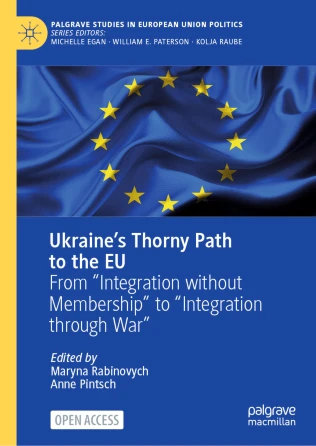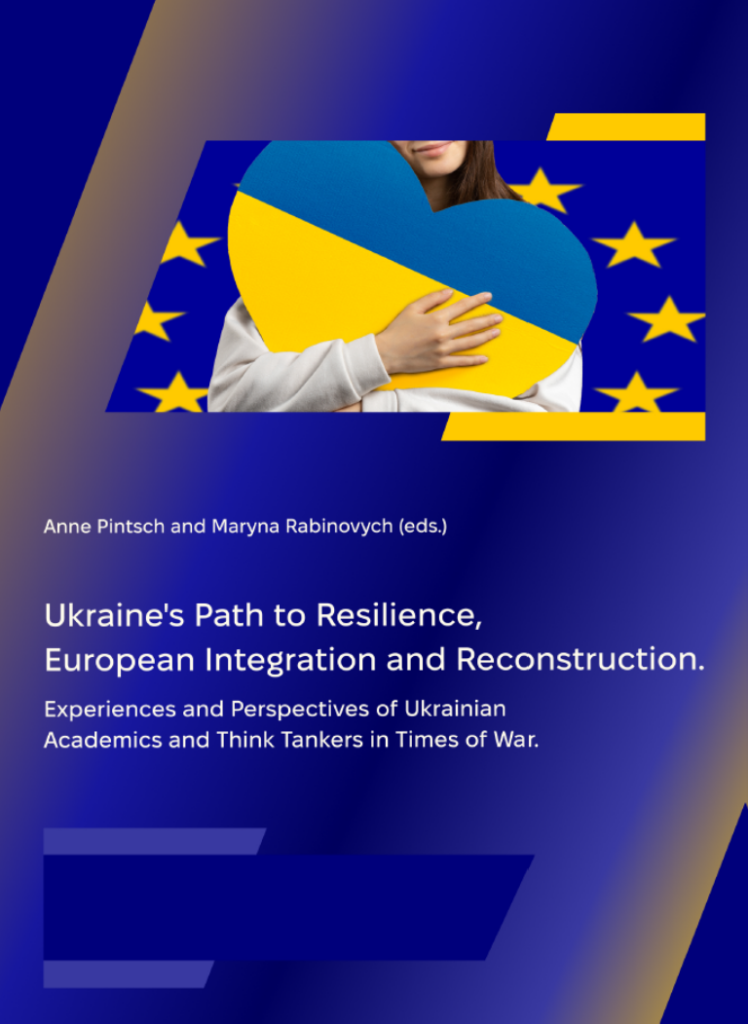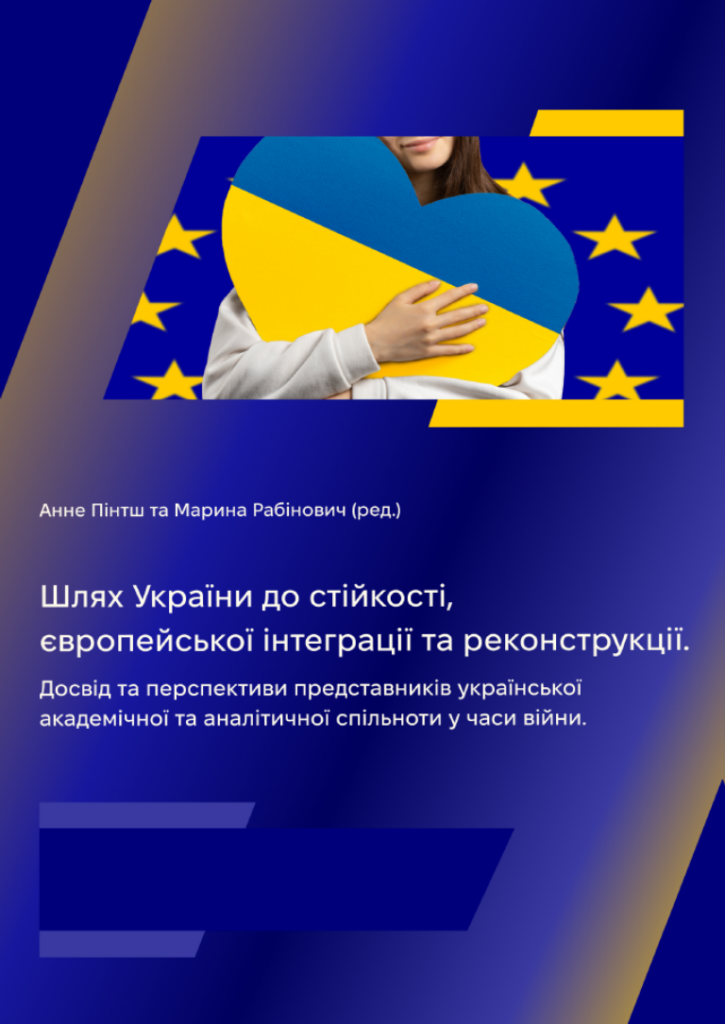
The project “Lowering the Bar? – Compliance Negotiations and the EU-Ukraine Association Agreement” was funded 2021-2024 by the Research Council of Norway under the project number 315777.
The project idea was developed in 2020, prior to the start of Russia’s full-scale invasion of Ukraine, the EU’s granting of candidate country status to Ukraine and the recent start of the EU’s accession negotiations. Though these events significantly changed the context and scope of EU-Ukraine relations, the project’s core objectives remain unchanged.
Compliance negotiations
The project’s central research objective has been to analyse how the EU and Ukraine put into effect the ambitious Association Agreement, concluded in 2014. It started from the fact that the EU-Ukraine Association Agreement contains a large number of EU rules that Ukraine has undertaken to implement. However, the far-reaching reforms required are often expensive and contested. This has made the punctual and complete adoption and application of these rules a major challenge for Ukraine, opening up room for compliance negotiations.
Providing the basis for political and economic cooperation between the two partners, the Agreement has remained central to their relations amidst the war and the EU’s reinvigorated enlargement policy.
The project combined political science and legal perspectives to explore how the EU and Ukraine address this challenge. In particular, it looked at whether and how the EU and Ukraine have been re-adjusting the contents of the original agreement and with which results. It also explored how such readjustment has functioned across sectors, namely rule of law, trade and environmental protection. Findings of this research are summarised in:
Rabinovych, M., Pintsch, A. (2024). Compliance negotiations in EU external relations: the case of the EU-Ukraine Association Agreement. Journal of European Integration 46(2), pp. 257-277. https://doi.org/10.1080/07036337.2023.2272732
Our more general, theoretical take on compliance in the context of EU external differentiated integration (i.e., third states’ participation in EU policies), including EU association agreements with third states can be found in:
Rabinovych, M., Pintsch, A. (2022). EU external differentiated integration and compliance. Theoretical and legal aspects. In: B. Leruth, S. Gänzle and J. Trondal (eds.) The Routledge Handbook of Differentiation in the European Union, Routledge, pp. 99-115.
EU response to the war
Utilising our empirical research findings, we published a research article highlighting the role of the Association Agreement’s implementation and related EU-Ukraine network-building and socialisation processes in the EU’s initial strong reaction to Russia’s invasion of Ukraine:
Rabinovych, M., Pintsch, A. (2024). From the 2014 Annexation of Crimea to the 2022 Russian War on Ukraine: Path Dependence and Socialization in the EU–Ukraine Relations. Journal of Common Market Studies 62(5), pp. 1239-1259. https://doi.org/10.1111/jcms.13572
We also discussed challenges the EU is experiencing with framing the regional dimension of its policy in the East called the Eastern Partnership:
Rabinovych, M., Pintsch, A. (2023). Sustainable Development: A Common Denominator for the EU’s Policy Towards the Eastern Partnership? The International Spectator 58(1), pp. 38-57. https://doi.org/10.1080/03932729.2023.2165774
Links to project-related popular science, policy and media contributions dealing with the war in English and Norwegian can be found under “War in Ukraine”.
Discussing the state of Ukraine’s European integration & documenting partners’ wartime experiences
The project was conducted in cooperation with three Ukrainian partners: the Ukrainian Catholic University (UCU) in Lviv; NGO “Foreign Policy Council ‘Ukrainian Prism’” with offices in Kyiv and Brussels and the Lviv-based NGO “Environment-People-Law”. In collaboration, we worked on strengthening both the research capacity in Ukraine and expertise on Ukraine and EU-Ukraine relations in Norway.
In June 2023, we conducted a book authors workshop at the University of Agder, involving researchers from our partner institutions and guest contributors. The workshop was a first step to the preparation of the edited collection of works on Ukraine’s European integration, its evolution and challenges:

Rabinovych, M., Pintsch, A. (eds.) (2025) Ukraine’s Thorny Path to the EU. From “Integration without Membership” to “Integration through War”. Palgrave Macmillan. (open access)
Policy insights based on the book and related to various sectors were discussed during the policy dialogue “Ukraine’s Thorny Path to the European Union: Sectoral Insights and Future Prospects”, held in March 2024 at the Ukrainian Catholic University and online.
Insights on Norwegian-Ukrainian research cooperation during the time of the war were disseminated at the hybrid session “Ukrainian-Nordic Research Co-operation: Utilising the Lessons of War for the Reconstruction of Ukraine”, co-organised with project partner Ukrainian Prism in April 2024.
Moreover, recognising the uniqueness and complexity of challenges Ukrainian academics and civil society activists encountered amidst the war, we prompted them to document their experience of wartime resistance and resilience. We also asked them to reflect on the major endeavour of Ukraine’s post-war reconstruction to take place in parallel with accession negotiations.
Blog contributions by our partners and guest contributions can be found on this website under “Blog”.


Rabinovych, M., Pintsch, A. (eds.) (2025) Ukraine’s Path to Resilience, European Integration and Reconstruction. Brochure produced by Ukrainian Prism.
Blog posts focusing specifically on reconstruction issues were also published in the #RebuildUkraine blog series, co-edited by the Project Team under the UiA Democracy in Action blog.
Capacity-building and future plans
In addition to the research objectives, the project included a capacity building component.
The cooperation with our partners started with the UiA-UCU networking meeting in Lviv and online in September 2021.
In March 2022 and June 2024, we held the following capacity-building webinars:
- “Internationalising Business –Harnessing Norwegian Experience for Ukrainian Companies” for students, young faculty and entrepreneurs in cooperation with UCU.
- “Ask the Editor: Your Way to a Publication with Palgrave Macmillan”, where young researchers got acquainted with the dynamics of a book project from the proposal to publication and dissemination.
Finally, prospects for further cooperation were discussed through bilateral exchange with the partners in June 2024.
An overview of all project-related events is available under “Past events”.